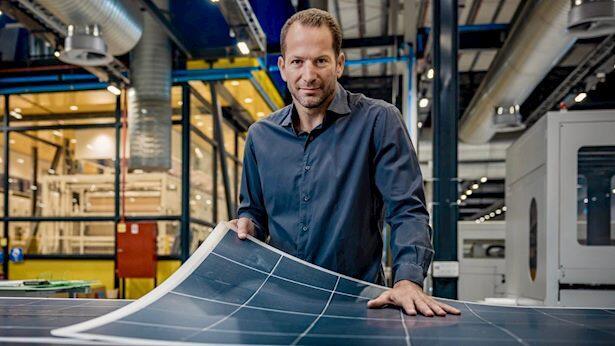
Israeli technology revolutionizing millions of vehicles worldwide
Apollo Power, the Israeli solar technology company, is revolutionizing the commercial vehicle industry with its breakthrough flexible solar solutions. After securing a strategic partnership with German automotive giant ZF for the European After Market, the company is poised to transform how trucks, buses, and commercial fleets generate clean energy on the road. We spoke with cofounder and CEO Oded Rozenberg about the company's unique technology, its competitive advantages, and the massive market opportunity ahead
1. What is the company's vision, and in which additional fields do you see potential for the unique technology you've developed?
A: Our vision is to transform every sun-exposed surface into an accessible source of energy. The flexible technology we've developed opens possibilities in every field where traditional panels fail due to harsh environmental conditions.
In the RV sector, for example, we're collaborating with Lippert, the leading company in the American market. The inherent flexibility in our design enables implementation of solutions even in locations requiring resistance to vibrations, shocks, and extreme weather conditions. Our technology offers a solution that doesn't currently exist in the market.
2. What unique technical characteristics distinguish your solar panel compared to conventional panels?
A: Our technological revolution lies in durability and flexibility. Classic panels simply cannot survive in the harsh environment of a moving vehicle with its vibrations and extreme conditions.
The flexible cells we've developed were specifically designed for this challenging environment. They successfully handle shocks, vibrations, and extreme weather without losing efficiency or breaking down. This leads to a stable long-term solution and real energy savings exactly where needed.
3. What made you the preferred choice for ZF, and what were the stringent criteria you had to meet?
A: The decisive factor was obviously our technology. Currently, we have no significant competition in the global market in this specific field, which gives us a clear competitive advantage that ZF recognized.
Beyond innovation, our extensive industry experience was critical. Collaboration with leading brands like Nestlé, Tnuva, Osem, Unilever, and Strauss exposed us to the high standards of the automotive world. This is a world where quality and regulation are everything, and ZF, which insists on uncompromising quality, knew we understand the required standards.
The final challenge was proving our manufacturing capabilities. ZF wanted to ensure we could meet the expected production volumes. The new facility at Mevo Carmel (in the north of Israel) provides the required infrastructure and enables us to meet the planned quantities. Ultimately, the combination of technological innovation, industrial experience, and manufacturing capability created a complete solution that met ZF's requirements.
4. How does the agreement with ZF for the After Market change your position, and what new opportunities does it open?
A: The agreement with ZF for the After Market represents a significant leap in our potential sales volume.
Beyond volume, the agreement serves as our gateway to the European market (we're already operating in America). ZF operates thousands of service points worldwide for trucks and buses and influences millions of vehicles. The connection to their global network gives us immediate access to the enormous European market and may serve as a foundation for collaborations in additional countries worldwide.
5. What makes your solution particularly suitable for commercial vehicles, and what technological challenges did you have to solve?
A: The commercial vehicle world presents a fascinating opportunity. Hundreds of millions of vehicles are under the scorching sun daily and require energy at the travel location itself. Refrigerated trucks that need to operate cooling systems, delivery trucks with electric lifts, and buses operating cameras and computers – all are active energy consumers that can benefit from immediate solar energy generation.
The major technological challenge we faced was system durability. Traditional panels simply break under the harsh conditions of a moving vehicle, and we solved this issue along with real-time energy capacity.
6. How many commercial vehicles do you anticipate will adopt the technology, and what market share are you targeting?
A: The potential market before us is enormous. There are tens of millions of trucks and buses for which our solution is suitable. The optimal target audience for our technology is relatively new vehicles.
For precisely this reason, ZF represents a vital strategic partner since they control direct access to massive fleets in Europe and other countries. Realizing the potential in our agreement with them could enable us to break into the market on a significant scale and reach the broad audience of commercial vehicle fleet owners who can benefit from our technology.















